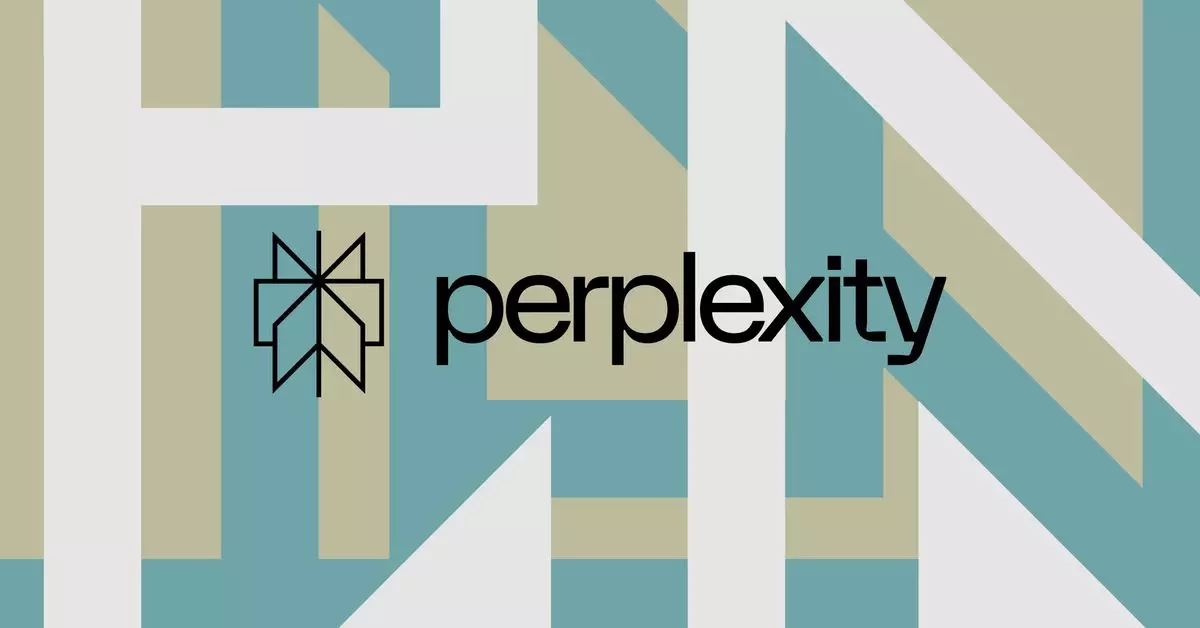In recent years, Artificial Intelligence has reshaped various sectors, offering groundbreaking tools that redefine how we access and process information. Among these innovations is Perplexity, an AI-powered search engine that claims to enhance search capabilities by aggregating publicly available facts. However, the emergence of such technologies has not come without controversy. Traditional media companies, most notably News Corp—the parent company of The Wall Street Journal and the New York Post—have raised alarms, accusing firms like Perplexity of infringing on intellectual property rights by scraping content without permission. This ongoing clash has opened up an essential dialogue regarding the ownership of information in the digital age.
News Corp has filed a lawsuit against Perplexity, asserting that the AI search engine’s practices exemplify rampant copying that threatens the integrity of journalism. This suit reflects a growing fear among traditional media entities, which feel increasingly vulnerable to disruptive technologies. The allegations focus on the claim that Perplexity’s platform replicates journalistic content on a grand scale, effectively undermining the original authorship and subsequent revenue streams for those creators. Furthermore, News Corp claims that Perplexity has appropriated large swathes of copyrighted material while presenting this information alongside its brand as a substitute for the actual sources.
In response, Perplexity has countered these allegations by stating that facts themselves cannot be owned; only the expressions of those facts can be protected under copyright law. It argues that a lawsuit like News Corp’s indicates a defensive and short-sighted attitude from media companies, which may be conforming to unnecessary and self-defeating behaviors. This perspective raises critical questions about how new technological paradigms will impact the principles of information dissemination.
The Broader Implications for Journalism and AI
The tussle between AI startups and media corporations signals a much larger and more complex issue regarding the future of journalism in a digital-first world. As AI technologies become more integrated in everyday operations, journalists face the challenges of remaining relevant in a rapidly changing landscape. If AI can automate searches and provide information without crediting the original sources, will this ultimately devalue the hard work of investigative journalists and content creators? Or could it signal an opportunity for media firms to adapt and employ AI in ways that enhance their offerings rather than detract from them?
Perplexity argues that the relationship between tech startups and traditional media should not be adversarial. It has cited its partnerships with reputable publications like Time and Fortune, emphasizing collaborative opportunities rather than litigious confrontations. The company’s claims that the allegations pose an incomplete narrative bring up the notion that progressive collaboration may offer better survival strategies than prolonged court battles. This sentiment indicates a desire for mutual enhancement, rather than exploitation.
Moreover, ethical considerations loom large in this debate. As AI technologies evolve, the moral implications of content replication continue to challenge industry norms. Perplexity has boasted about features that allow users to “skip the links,” effectively sidestepping what they view as limitations imposed by traditional journalism. While this may appear user-friendly, it also raises questions about the fairness of benefiting from someone else’s intellectual labor without providing due credit.
Opponents like News Corp argue that such practices threaten the foundation of journalism itself, deeming it essential to protect content creators against theft. The rhetoric of “content kleptocracy” highlights fears that the very pillars of quality journalism could erode if protections aren’t enforced. Advocates for stringent intellectual property rights stress the necessity of creating frameworks that ensure all parties—journalists, AI companies, and end users—understand the value of originating ideas and ensure their respect.
As discussions surrounding copyright and AI technology continue to heat up, the conversation points toward a crucial pivot in the way digital information is handled. Both Perplexity and News Corp represent facets of a larger systemic shift, one where the need for innovation must balance with the principles of intellectual respect and ownership. Future dialogues must foster not only accountability but also collaboration in order to ensure a harmonious coexistence in the media ecosystem. The path forward is undoubtedly complex, but it holds the potential for a more enlightened understanding of how we engage with knowledge in an evolving digital landscape.

